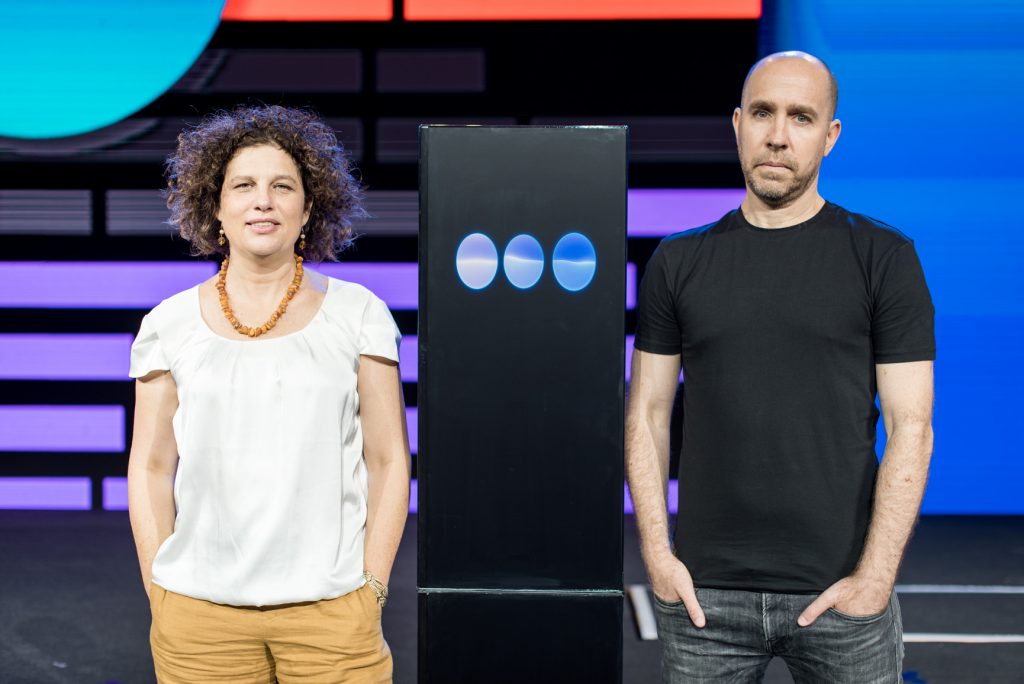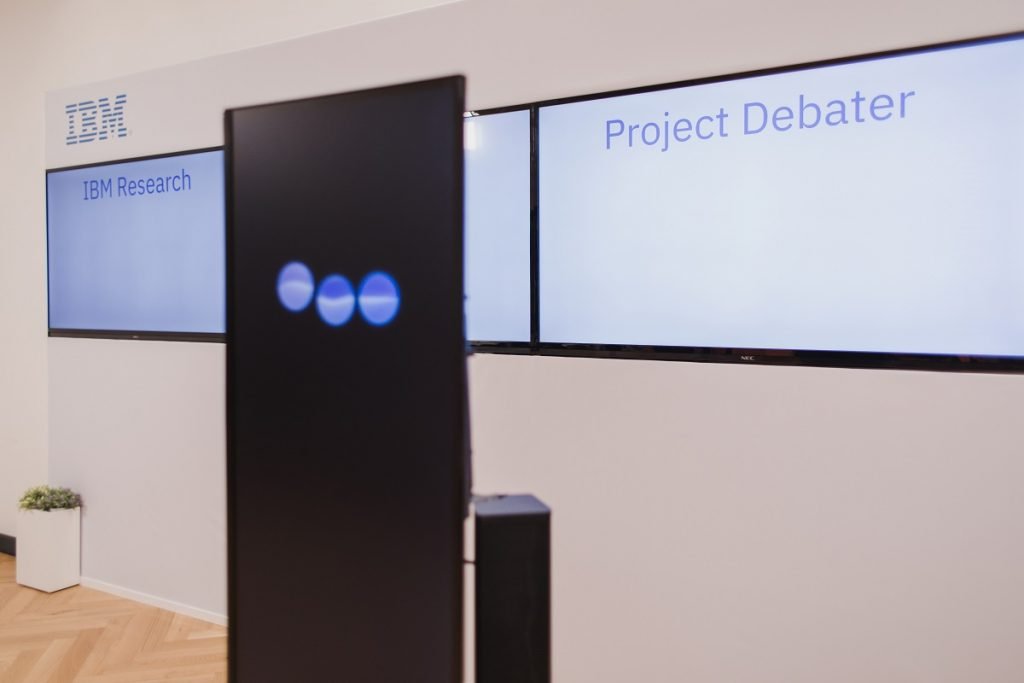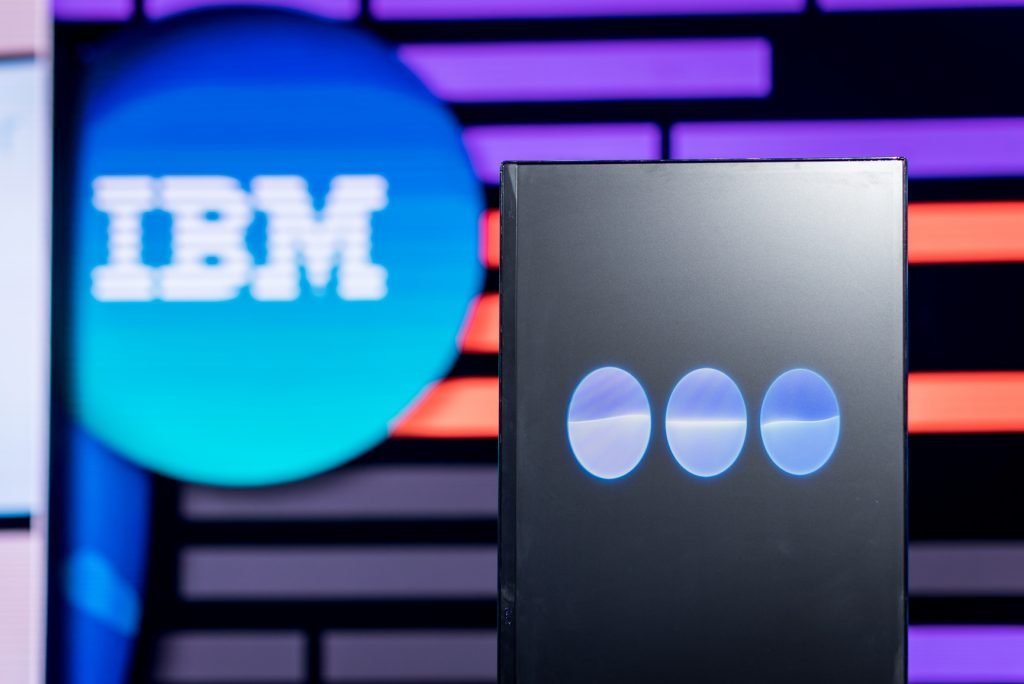Should cannabis be legalized? Governments across the world have been grappling seriously with that question, its layers and implications, for the better part of this decade.
Last week, in a world first, an AI-powered robot took on that very debate before a live crowd in Tel Aviv.
And the robot is called Project Debater, a unique initiative developed over six years in IBM’s Haifa research division in Israel. It was first unveiled last year, engaging in a series of live, public debates with human debating champions on subjects such as space exploration and the value of telemedicine. Earlier this year, Project Debater took on Harish Natarajan, a grand finalist in the 2016 World Debating Championships, in a debate focused on whether or not preschools should be subsidized. The robot lost.
SEE ALSO: Man VS Machine: AI-Powered IBM Robot, Developed in Israel, Debates Humans
And at the Expo Tel Aviv last Thursday, Project Debater considered whether cannabis should be legalized – but the setting was unique. This time, it collected short arguments from the audience, both in favor and against cannabis legalization and then processed them to generate rather coherent narratives, presented as two separate speeches.

With this demo, IBM’s Haifa team in effect launched Project Debater’s Speech by Crowd at the IBM Think Summit, and it took a little over an hour.
The crowd submitted 1,037 short arguments of up to 36 words via a mobile system, both for and against – a majority (62 percent) of the arguments were in favor of legalization. Project Debater then removed any redundancies, automatically identifying the same arguments using different words, and worked with 637 final arguments to identify the underlying themes of the debate and organize the narratives, delivering the lives speeches.
“Cannabis use is much less dangerous than alcohol, which is legal in most parts of the world. People have a right to do what they want to their own bodies,” Project Debater said in its heavily robotic female voice.
“Legalized cannabis would create businesses that the government can tax, increasing government revenue which can be used for social programs such as early childhood education, healthcare, and more,” it went on, using another of the pro arguments.
In the con speech, Project Debater said “cannabis could become a gateway drug that will increase the use of more dangerous drugs like cocaine and heroin,” and that “legalizing cannabis will raise crime rates, as too many people will abuse this mind-altering drug.”
Dr. Noam Slonim, principal investigator of Project Debater at IBM Research – Haifa, said the idea behind Project Debater is intended to enhance human decision-making when faced with complex questions and augment conversation through stating relevant facts and arguments. “Better decisions should start with careful considerations of the pros and cons,” said Slonim at the event.
Dr. Ranit Aharonov, a manager on Project Debater team, said the system has three ground-breaking AI capabilities: first, its data-driven speech writing and delivery; second, its listening comprehension that can identify key claims hidden within long continuous spoken language; and third modeling human dilemmas in a unique knowledge graph to enable principled arguments.

Unlike existing products such as Apple’s Siri and Amazon’s Alexa that primarily recite rote information, Project Debater uses facts to reason and construct arguments, drawing from a database of hundreds of millions of articles from trusted journals and magazines. It also recognizes counter-arguments and prepares rebuttals, Dr. Aharonov explained.
On Thursday, Project Debater crowd-sourced 1,000 arguments to build its narrative and the glitches were apparent. The system outlined four main points for each speech but the arguments were repetitive and some “thoughts” were incomplete or incoherent.
Despite these hiccups, both Slonim and Aharonov expressed their satisfaction with the demo, thanking the audience for its active participation.
Sign up for our free weekly newsletter
SubscribeFollowing the read-out speeches, the crowd had to vote on which narrative was more convincing, with a strong majority (76 percent) signalizing that the pro-legalization text fit that description.
New era
Project Debater has been hailed as the onset of a new era for human-machine interaction. IBM Research Director Arvind Krishna wrote in a post last year that IBM’s mission was to develop broad AI that learns across different disciplines to augment human intelligence.

“AI assistants have become highly useful to us through their ability to conduct sophisticated keyword searches and respond to simple questions or requests (such as “how many ounces in a liter?” or “call Mom”),” he wrote, adding that Project Debater “explores new territory” by absorbing “massive and diverse sets of information and perspectives to help people build persuasive arguments and make well-informed decisions.”
As for applications, the project’s official site has indicated Project Debater could be used by companies, executives, government officials, legislators and day-to-day users for “compelling, evidence-based arguments” while “limiting the influence of emotion, bias, or ambiguity.”
AI potential
Similar projects in the AI sphere include Google Duplex, a conversation chatbot capable of rapid reasoning to maintain conversation with humans. Notably, it mimics speech nuances including hesitation after hearing a complex sentence, restatement during interruptions and the use of filler words.
Unlike Project Debater, which had a heavily robotic female voice, Duplex’s technology makes it sound like an authentic person. The tech, also developed in Israel, was unveiled in May at Google’s annual I/O developer conference in Mountain View, California, where CEO Sundar Pichai aired a recorded phone call of the system making a haircut appointment.
SEE ALSO: Need A Dinner Reservation? Israeli Tech Powers Google’s New Human-Sounding Assistant To Book It
At the same time, Microsoft has developed Xiaoice, a Chinese human-imitating chatbot capable of handling similar tasks through telephone.
These innovations did not suddenly arise without previous efforts. In 1997, IBM developed Deep Blue, a chess-playing computer that defeated Russian grandmaster Gary Kasparov. This was proceeded by Watson, another IBM computer that defeated champions Brad Rutter and Ken Jennings in Jeopardy in 2011. More recently in 2017, Google’s DeepMind developed AlphaGo, which defeated world champion Ke Jie in Go, claimed to be the world’s most complex game. These developments attest to the tremendous potential of intelligent computer thinking.

Loading…
Infographic by Anjali Berdia.
Ben Huang contributed to this report.
Related posts

Editors’ & Readers’ Choice: 10 Favorite NoCamels Articles

Forward Facing: What Does The Future Hold For Israeli High-Tech?

Impact Innovation: Israeli Startups That Could Shape Our Future




Facebook comments